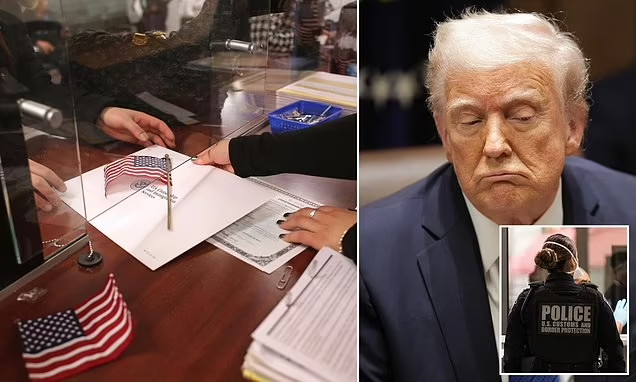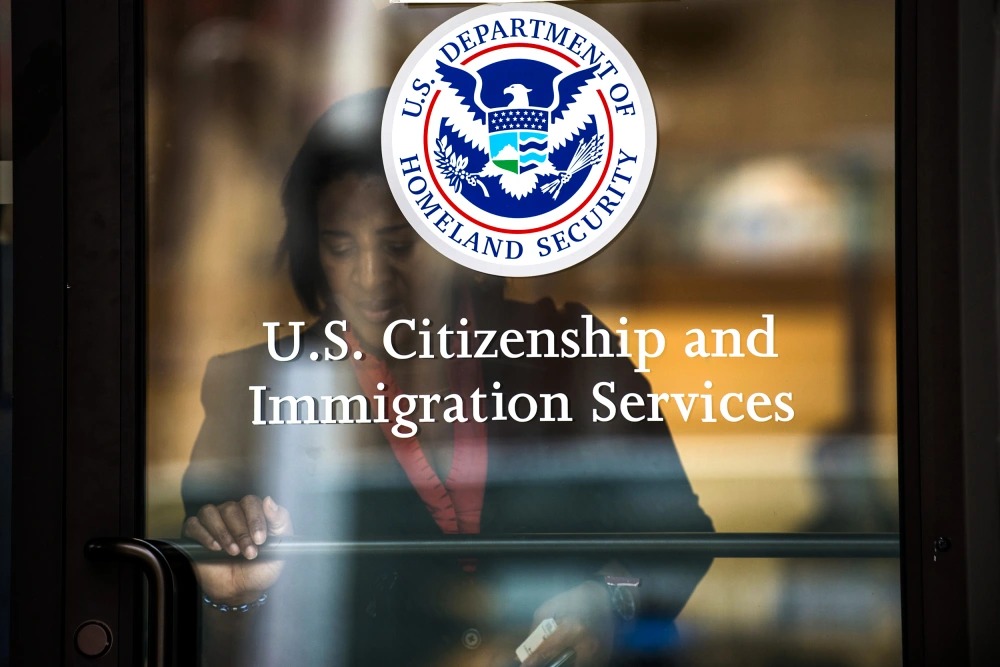WASHINGTON – The Trump administration has temporarily paused the finalization of certain green card applications to conduct additional national security screenings, in compliance with an executive order signed by President Donald Trump.

U.S. Citizenship and Immigration Services (USCIS), part of the Department of Homeland Security (DHS), has suspended the processing of some legal permanent residency applications. The action follows Trump’s executive order, “Protecting the United States from Foreign Terrorists and Other National Security and Public Safety Threats,” signed on Jan. 20, which directs agencies to enhance screening procedures for immigrants, particularly those from regions identified as security risks.
CBS News reported that USCIS has instructed staff to implement additional vetting measures for refugees and asylum seekers applying for green cards. A DHS spokesperson confirmed the agency is “placing a temporary pause on finalizing certain adjustment of status applications pending the completion of additional screening and vetting.” The statement did not specify which applications are affected, the expected duration of the pause, or potential operational impacts on USCIS.
For refugees and asylum seekers, the measure introduces additional scrutiny beyond the extensive vetting process they already undergo before entering the U.S. Laura Collins, director of the Bush Institute-SMU Economic Growth Initiative, emphasized that individuals granted asylum or refugee status have already passed rigorous security screenings.
“There’s a certain amount of documentation you have to provide as a refugee as well as an asylee,” Collins said. “All of these people who are approved for resettlement or to remain in the United States, that’s because the United States government already approved them to be here.”
Refugees and asylum recipients are required to wait at least one year before applying for a green card. Collins noted that it remains unclear how long the additional vetting will take and what impact it may have on processing times.

During Trump’s previous term, USCIS was directed to scrutinize every application meticulously, which slowed processing times and disrupted agency operations. The increased scrutiny also contributed to financial strains, as USCIS is primarily funded through application fees.
“In slowing down those applications, because USCIS is fee-funded, if you’re not processing as many applications, you are not taking in as much money, which means you don’t have the capacity to maintain all the contractors and other staff you have, so you start to shrink the agency,” Collins said.
According to the Migration Policy Institute, federal spending on vetting increased from $53 million in 2016 to $149 million in 2020. That same year, USCIS faced a $1.2 billion budget shortfall due to declining applications and increased enforcement costs.
USCIS had recently made progress in reducing its backlog, cutting pending petitions by 15% in 2023—the first decline in a decade—and by another 11.2% last year. The pause on processing certain applications comes as the agency works to address its workload and maintain financial stability.



